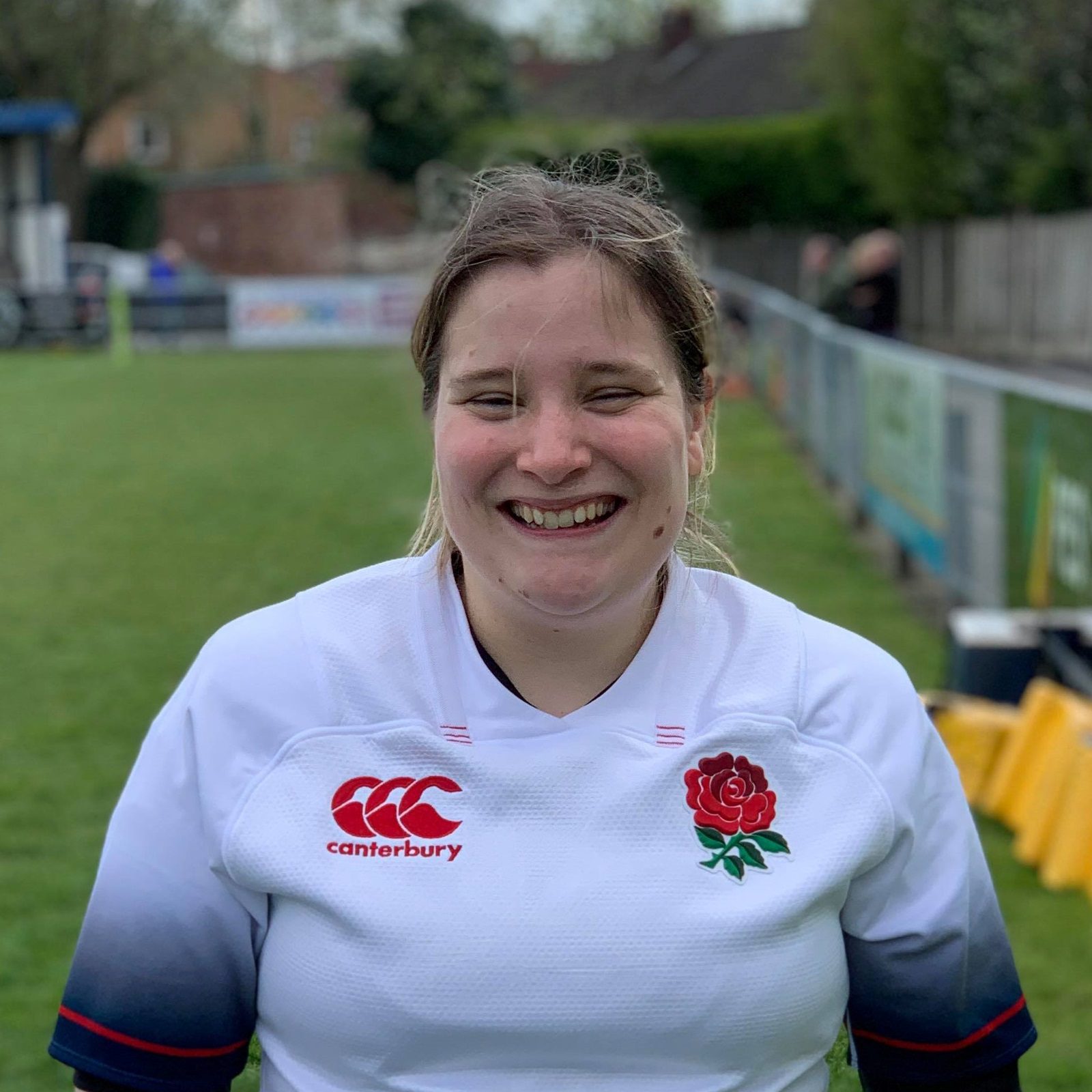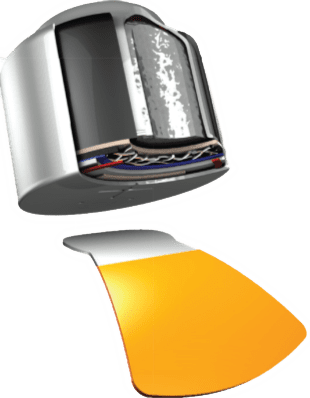Beth Weller is a Scrum-Half for England’s Deaf Rugby Union Women’s Side. Here she shared her personal experience with a rare form of ‘Cookie Bite’ hearing loss and discusses her tips for managing hearing loss when it comes to sports.
I have suffered from congenital hearing loss since birth. I was born 25 weeks premature, which was likely a factor of my particularly rare form of hearing loss.
I always struggled in school. I’d have difficulty keeping up with my classmates in lessons and often struggle to stay awake. My teachers would label me as lazy or naughty, attributing my difficulties as a lack of trying rather than my struggle to understand what was going on in the lesson.
My Mum repeatedly asked my doctor to test my hearing again, but they always attributed my varied loss of hearing to the effects of colds and sickness. We knew it had to be more – I was rarely sick.
Diagnosis
When I was 11, I discovered I have a rare form of hearing loss known as “Cookie Bite Hearing Loss”. My audiologist helped me to understand what Cookie Bite Hearing Loss is. She gave me a cartoon audiogram to colour in, which showed the dip in the level of my hearing at the mid-frequency range. She explained to me that my hearing loss was mild, but the dip which forms the “cookie bite” shape in my audiogram is at the range which most speech and conversation happens.
The diagnosis of my Cookie Bite Hearing Loss explained why I found school so difficult. I was missing out on those key frequencies used in common speech, and coupled with the distracting background noise associated with school, I struggled in class and found it difficult to make friends. I felt isolated.
My hearing loss gradually became worse over the years and the problem got worse in high school. There was little to no support for pupils with hearing loss when I was in school. Although my school’s policy was to provide the correct support whilst not singling me out, the plan was flawed. In order to accommodate my hearing loss my desk was placed right at the front of the class, connecting it to the teacher’s. It felt like all eyes were on me and that only amplified the feeling of being different.
University was a better experience for me. I had plenty of academic support and received printed copies of the lectures, allowing me to really focus on understanding the content of the course.
How I found Rugby
Whilst at University, I became involved with England Deaf Rugby. I had a conversation with one of the men’s first team rugby players, who also has a hearing loss. He mentioned that England were recruiting for hard of hearing/deaf female players and encouraged me to attend my first training session. I was hooked. This was the first time I had met with other men and women who had hearing loss and shared a love of rugby.
My first game took place at Cardiff Arms Park. Pulling on the jersey for the first time was a special moment to me and one that I will never forget.
In April 2018, I was invited to Sydney, Australia, to take part in the World Deaf Rugby 7s Tournament, representing a Barbarians Side. Unfortunately, a few days before the tournament, this fell through, but I was asked to join the Australian Side. During this tournament, I wore the coveted gold Jersey and represented Australia against my own side.
To make this an even more memorable experience, my fiancé, who flew out to Sydney with me, proposed during our stay in Australia.
Never stop pursuing your ambitions if you’re hard of hearing
During the World Deaf 7s I met many different players from across the globe who play sports and I’ve now become part of a wider deaf community. Having a hearing impairment or being Deaf can be isolating at times, I’ve found playing sport with others who share the same disability has helped me build up a support network and given me a new-found sense of confidence.
Jodie Ounsley, one of our players, is just one example of how hearing loss should never prevent you from pursuing your ambitions to the highest level. Jodie has gone on to become an established deaf athlete signing for England Women’s 7s ahead of the 2020 Olympics. She was previously a Deaflympics GB Sprinter and winner of Young Deaf Sports Personality 2018.
After undergoing reconstructive surgery last year, my ambition is to fight for a place in the upcoming South Africa Tour in May 2020. I would like to win my first full international cap and am excited to what the season ahead will bring.
Finding England Deaf Rugby has been one of the best things that has happened to me. I’ve worn the rose and made some wonderful friends along the way and I’m looking forward to what the future holds.
Beth’s advice for managing your hearing loss as a sportsperson:
-
Avoid damaging your hearing aid during training
Hearing aids are expensive devices and rugby is a contact sport. The sport inherently involves mud, water and physical contact, which raises the possibility of damaging the hearing aid device. I personally avoid this risk by keeping my hearing aids secure in a locker with the battery door open as it makes the batteries last longer. Whereas, some players choose wear their device during training, protected by a padded scrum cap – it’s personal preference.
-
Read up on the rules of your sport
When it comes to international deaf rugby, it is against the rules to wear hearing aids during the match. I manage by lip reading, non-verbal communication and asking coaches to repeat calls I miss.
It is important you understand the rules for wearing hearing aids when it comes to your sport, these are put in place to protect you and your teammates. -
Find the device that’s right for you
It’s important to find the device that is right for you. This could take some time but trust me, it’s worth it. I use a powerful Oticon OPN hearing aid device that is perfect for my lifestyle. It allows me to stream my music when I am in the gym, and feels comfortable.
-
Be prepared
If, like me, you use a demanding hearing aid device, it is important you are prepared. Always keep spare hearing aid batteries with you in case they run out unexpectedly. Use a brand which delivers the longest lasting performance and familiarise yourself with how to make the most of your hearing aid batteries.
-
Rest
Finally, take some time out for yourself. Many forget that hearing loss alone can be very tiring. A significant amount of your energy is taken up with communicating with others and processing information – this is often referred to as listener’s fatigue. Coupled with a training regime, it can be exhausting. It is important to take time out your day to relax.
Any opinions expressed in this article are that of the writer and not Energizer


